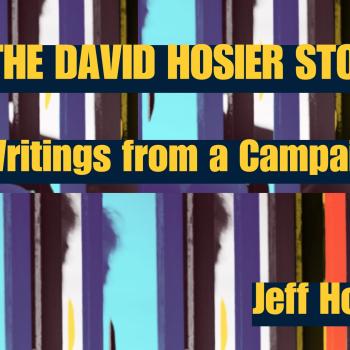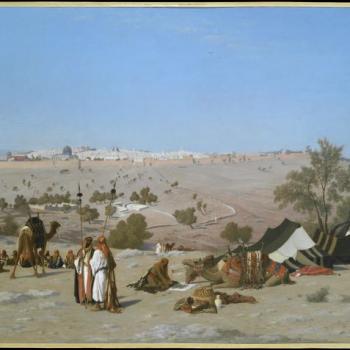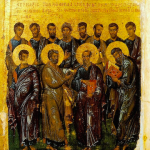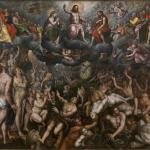Have you been busy with shopping and holiday to-do’s, but still find yourself searching for more? If so, you’re not alone. For centuries upon centuries, mankind has searched for meaning. Ancient philosophers like Plato, sought the good, true, and beautiful; and Aristotle proclaimed that engaging in virtuous actions will lead to fulfillment.
Hedonia vs. Eudaimonia
Psychologists today haven’t strayed far from these wise men. Researchers distinguish two types of well-being: hedonic and eudaimonic. Hedonic well-being is that which is derived for pleasure, such as enjoying a delicious Christmas dinner. Eudaimonic, on the other hand, is derived from meaning; it involves living a life that’s aligned with your deepest, core values, and reaching your fullest potential. If you’re interested in learning more, check out this article from Positive Psychology.
Eudaimonia in Times Square
You may find that society typically tends to emphasize hedonic well-being, especially during the holidays. We’re faced with endless advertisements for new clothes, electronics, toys, and kitchen gadgets. But this holiday season, the Church of Ladder Day Saints switched things up a bit for us, and provided a beautiful display of images depicting the true meaning of Christmas. Watch this YouTube video for a recap of the display and the responses of city dwellers and tourists, or read this article to find out more about it.
Self-transcendence
In the video, notice the joy, awe, and wonder expressed on each individual’s face as they witness this incredible display. These emotions are self-transcendent, meaning that they are positive emotions which take us beyond ourselves and point to something greater. Interestingly, self-transcendent emotions are tied to positive and prosocial behaviors (Stellar et al., 2017), suggesting that they benefit not only us, but others as well.
The Christmas story
What’s beautiful about the display is that it invites us to search for meaning this holiday season. In the Bible, we read about the Wise Men who, upon studying the universe, identified a star that would lead them to the baby Jesus (Matthew 2:1-12, The Three Wise Men). We read about Joseph and Mary’s journey to Bethlehem, where they found nowhere to give birth to their son, other than an animal manger (Luke 2:7). We read about the poor shepherds who walked, clothed rags, to find the baby Jesus (Luke 2:8). What does this Christmas story ultimately point to?
Finding meaning in the Christmas story
The Christmas pstory oints to something beyond us—the poor, the suffering, the struggling. It points to our call to attend to the needs of others, to come, bringing them gifts. It points to our shared suffering—we are not alone in the pangs of childbirth or homelessness or poverty. But rather, we are all united, past, present, and future. And, through love, we can flourish together—a concept that psychologists often refer to as collective well-being (Diener, 2003).
The Giving Machine initiative
The Church of Latter Day Saints recognizes this and invites others to participate. We can, with Plato and Aristotle, the Wise Men, and with each other, search for meaning this holiday season. We can choose to act in line with our deepest values and in doing so, become our truest selves, reaching our ultimate fulfillment.
With this, we might consider donating to The Giving Machine—an initiative that has generated more than $22 million for charity since 2017 through the use of vending machines, like the ones shown here, located across 41 U.S. cities. Passersby can donate anything from livestock to vaccines to soccer balls for youth. You can also donate from the ease of your home by visiting the Giving Machine website.
If you decide to bring gifts, just like the Wise Men did, to the poor, you might notice benefits for yourself as well, as you’ll see described in my previous post, “Is It Really in Giving That You Receive?” Moreover, you might find that acting in line with your deepest values feels good and fulfilling; and, importantly, offers meaning in life.
Search for meaning this holiday season
All in all, don’t be afraid to recognize your inner longing for true meaning. The holidays and the New Year are a perfect time to refresh your search. In the Bible, we read “seek and you will find..” It can’t hurt to try it out—seek meaning everywhere—in the stars, in NYC Time Squares advertisements, in your Christmas Eve social gathering, and even in hardship. You’re sure to find meaning and in doing so, rejoice in your newfound eudaimonic well-being.
References
Diener, E., & Suh, E. M. (Eds.). (2003). Culture and subjective well-being. MIT press.
Stellar, J. E., Gordon, A. M., Piff, P. K., Cordaro, D., Anderson, C. L., Bai, Y., … & Keltner, D. (2017). Self-transcendent emotions and their social functions: Compassion, gratitude, and awe bind us to others through prosociality. Emotion Review, 9(3), 200-207.

















